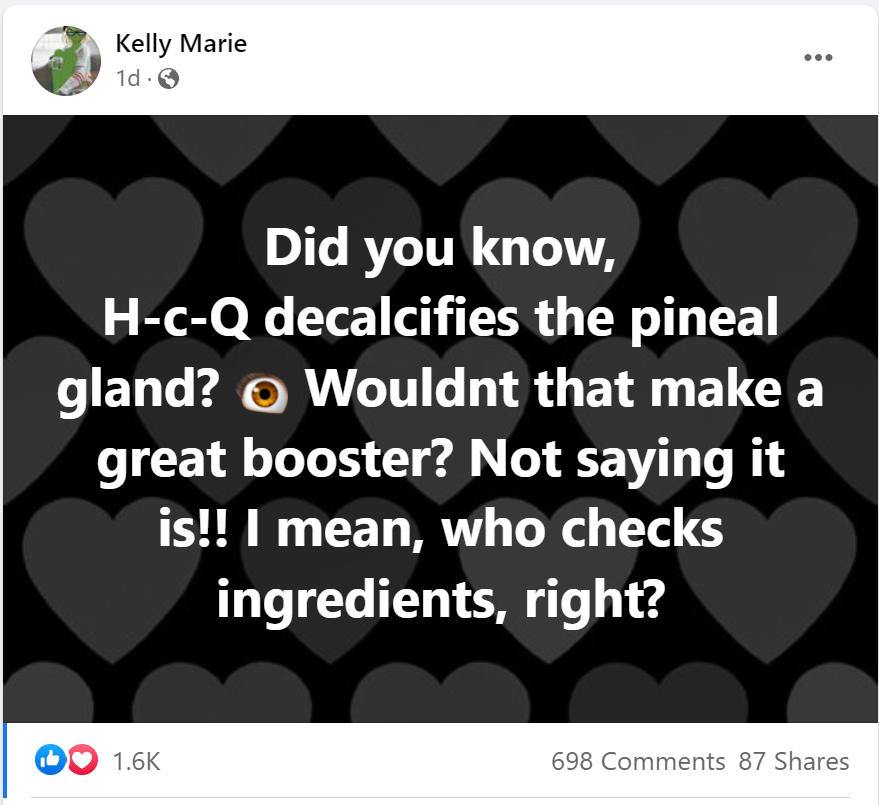
Does hydroxychloroquine decalcify the pineal gland? No, there's no evidence to substantiate that: The anti-parasitic and immunosuppressive drug is approved by the Food and Drug Administration to treat or prevent malaria. It's also prescribed to treat lupus and rheumatoid arthritis. FDA label instructions include no other uses.
The claim appeared in a Facebook post (archived here) on December 21, 2021, under the title "Did you know, H-c-Q decalcifies the pineal gland?" It says:
Did you know, H-c-Q decalcifies the pineal gland? 👁️ Wouldnt that make a great booster? Not saying it is!! I mean, who checks ingredients, right?
This is what the post looked like on Facebook on December 21, 2021:
(Source: Facebook screenshot taken on Wed Dec 22 16:31:39 2021 UTC)
The pineal gland is a small pine cone-shaped gland in your brain. It helps control sleep patterns by producing a hormone called melatonin. As we age, calcium can build up in some parts of our body, including the pineal gland, and can impair how it works.
The post cites no research or source for its claim.
In a December 23, 2021, email to Lead Stories, Dr. Rohit Jain, an assistant professor of medicine in the division of endocrinology at the George Washington University School of Medicine and Health Sciences, said he's not aware of any studies related to hydroxychloroquine and pineal gland decalcification and added there's no diagnosable condition:
There is some literature on calcification in various parts of the brain (in various conditions) but no known disease/entity of decalcification.
A search of the National Library of Medicine confirms this. Lead Stories found no instances where hydroxychloroquine, pineal gland and decalcify/decalcification appeared together in any article or study (here and here).
The concept of decalcifying the pineal gland is an alternative practice, according to Healthline. It's attractive because it could potentially help with such issues as sleeping problems and migraines, the article says. There are few studies on decalcification of the pineal gland and little consensus on what might work to accomplish it. Hydroxychloroquine is not mentioned among the solutions.
Hydroxychloroquine and chloroquine gained plenty of attention in the early months of the pandemic as a possible treatment for COVID-19. After initially receiving emergency use authorization (EUA) from the FDA on March 28, 2020, its EUA was revoked on June 15, 2020, when it didn't decrease the likelihood of death or speed recovery. An FDA review of safety issues with the use of hydroxychloroquine and chloroquine to treat hospitalized patients reported serious heart rhythm problems and other concerns, including blood and lymph system disorders, kidney injuries, and liver problems and failure.



















